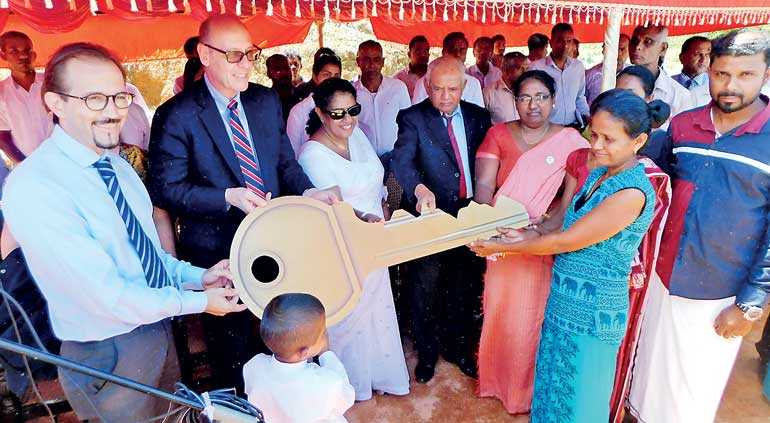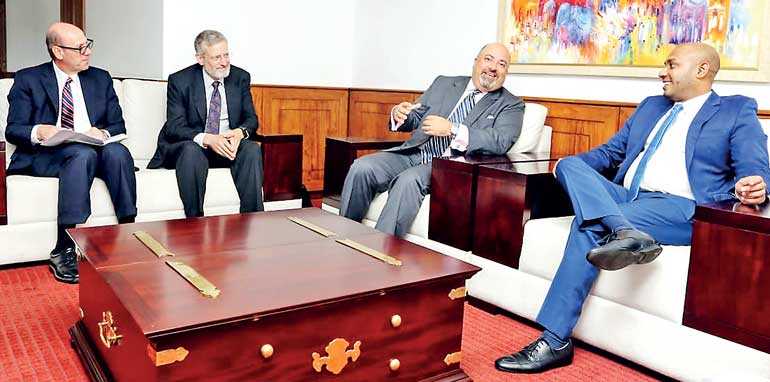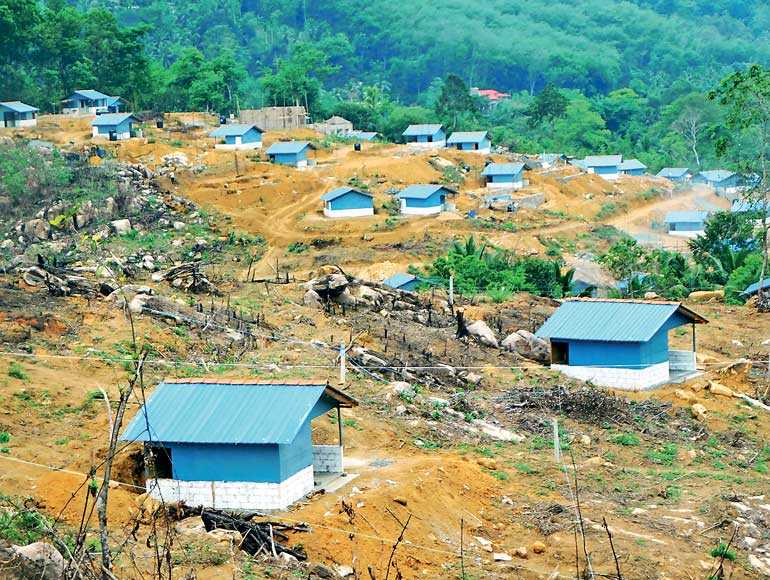Tuesday Feb 24, 2026
Tuesday Feb 24, 2026
Thursday, 24 May 2018 00:00 - - {{hitsCtrl.values.hits}}


From left: USAID Mission Director Reed Aeschliman, USAID/OFDA Advisor Dr. Michael Ernst, and US Ambassador to Sri Lanka and Maldives Ambassador Atul Keshap met with Minister of Irrigation and Water Resources Management and Disaster Management Duminda Dissanayake to discuss Sri Lanka’s preparedness ahead of the monsoon season

US Ambassador to Sri Lanka and Maldives Atul Keshap, US Agency for International Development (USAID) Sri Lanka Mission Director Reed Aeschliman, and Dr. Michael Ernst from USAID’s Office of Foreign Disaster Assistance (OFDA) met with Minister of Irrigation and Water Resources Management and Disaster Management Duminda Dissanayake to discuss Sri Lanka’s preparedness ahead of the monsoon season. Topics also included past and ongoing US financial and technical assistance for disaster preparedness, management, and recovery.
“I am proud that in 2017 USAID/OFDA provided shelter and other emergency items to more than 40,000 Sri Lankans and helped construct 240 rainwater tanks that benefited more than 8,000 people,” said Ambassador Keshap. “The United States also donated critical equipment to public hospitals to diagnose and monitor dengue patients after the floods, helping save many lives.”
USAID has provided assistance during natural crises to Sri Lanka since 2001 through OFDA. To date, USAID/OFDA has provided more than 13 billion Sri Lankan rupees ($85 million) in response to natural disasters in the country.
During his visit, Dr. Ernst met with Government agencies, such as the National Building Research Organisation and the Meteorological Department, and United Nations humanitarian response experts to discuss improvements to disaster management systems and information sharing, including early detection and warning of deadly landslides.
Currently, USAID/OFDA assistance strengthens the Sri Lankan Government’s capacity to coordinate among Government agencies and aid organisations, improves flash flood monitoring and warning, and trains hospitals to be prepared during emergencies. Efforts also include a regional South Asia global flash flood guidance system, collaboration on landslide research and technology, and rainwater-harvesting systems as a practical, disaster-resilient water supply option.